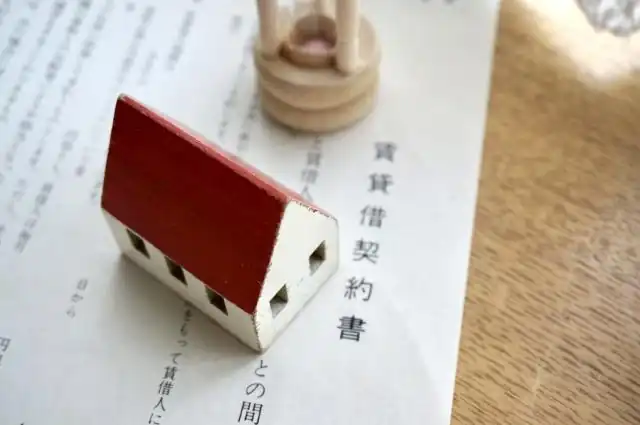When moving out of a rental property, some may be unsure about when and to whom they should communicate. Moving out of a rental property requires various procedures, so if you do not know the timing of communication and the important points, you may run into trouble.
In this article, we will introduce the best timing, methods, ways to communicate, and important considerations when moving out of a rental property. Referring to to this article can also help you avoid unnecessary expenses.
At Village House, we do not require a security deposit, key money, renewal fees, or handling fees for our properties. If you are looking for a new place to move in and want to save on costs, please visit our website for more details. costs, please visit our website for more details.
The process of moving out

- Review the contents of the contract
First, when planning to move out, check the contract to see who you should contact and how. There is generally a cancellation notice period of 1 to 3 months beforehand that needs to be followed.
If there is a contract renewal, you must make arrangements by the cancellation notice period, otherwise you will have to pay a renewal fee. You will be receiving notice about the contract renewal in advance by post. If you have already decided when you will be moving out, it is best to contact the landlord as soon as possible.
- Contact the landlord or real estate agency about your move
The real estate agency should contact the landlord before the notice period for termination. The information to convey includes the address, name, and desired move-out date. The method of communication will be explained below.
- Send the cancellation notice to the real estate agency
After contacting the real estate agency, fill out the necessary information on the cancellation notice given to you when you signed the lease and mail it. If you have lost it, contact the real estate agency and have them mail it to you.
Please note that the reception date will be the day the cancellation notice document arrives at the real estate agency. Since a phone call alone does not complete the move-out procedure, be sure to pay attention to the date.
- Procedures for canceling utilities (electricity, gas, water)
Let’s proceed with canceling utilities such as electricity, gas, and water. Cancellations can be done by phone or online. Please note that you may need to be present for gas cancellation. It’s advisable to confirm in advance whether your presence will be necessary or not.
- Submit a moving-out notice to the resident registration office
Within two weeks before or after moving, you need to visit the city hall and submit a moving-out notice. Once you have submitted it, you will receive a “moving-out certificate.” This certificate will be necessary when you move to your new address, so be sure to keep it in a safe place.
When submitting the moving-out notice, you will need to provide a document that can verify your identity, and a personal seal (hanko). A basic resident registration card or a My Number Card can serve as substitutes for the certificate of moving out, so if you possess them, please bring them with you when visiting the city hall.
Additionally, if you have national health insurance or a registered seal certificate, please bring them along as well. If you are moving within the same city, town, or village, please visit the city hall within two weeks before or after moving and submit a change of address notice.
- Mail forwarding notice
If you submit a mail forwarding notice to the post office, your mail will be forwarded from your old address to your new one for one year free of charge. To apply for mail forwarding, you will need identification documents and proof that can verify your old address, such as a driver’s license. This is a free mail forwarding service, so don’t forget to complete the procedure. If you’re too busy to visit the post office, you can conveniently apply online.
- Packing and disposal of unnecessary items
For packing, start by packing out-of-season clothing and books you are not currently reading. Additionally, furniture you won’t use in your new home and unwanted clothing can be sold at a thrift shop or through flea market apps to help cover moving expenses.
If you are too busy to pack, we recommend a plan that lets you leave all moving-related matters, such as packing, unloading, and loading, to professionals. It will cost more, but it will save you time and effort.
- Moving
Please finish packing before the day of the move. You must be present when the moving company is unloading and loading your belongings. If you cannot show up in person, you can have a friend or family member act as your representative. If you ask a representative to act on your behalf, it’s helpful to prepare them with a note of the layout of the furniture in your new home to facilitate smooth operations.
- Check the condition of the room during the move-out in person
After all of your belongings have been moved out, you will be accompanied by a real estate agent to inspect the property before moving out. The room will be checked for any stains or scratches, and it will be determined whether the landlord or the tenant will be responsible for the repair costs.
The duration of this inspection typically takes around 20 to 40 minutes. If there are many rooms, it may take longer, so it’s advisable to plan your schedule with extra time to spare.
- Settlement of move-out expenses
After the move-out inspection, you will receive an estimate for the repair costs. If you made a security deposit, repair costs will be deducted from it, and any remaining balance will be refunded within two months.
If you are not satisfied with the estimate for repair costs, however, you can request a correction. Please be cautious because signing any documents without proper verification may be interpreted as agreeing to the terms, making it unable to be corrected later.
How to notify about your move-out

When notifying about moving out, convey the following information.
Tenant: I am △△ and I live in ○○ Condominium. I am planning to move out by the end of □ (month) and I would appreciate your assistance with the process.
Real Estate Agency: Thank you for reaching out. I understand that you intend to terminate by the end of □ (month). To proceed with the process, we’ll need you to send us a cancellation notice. Please fill out the necessary details and send it by mail.
Tenant: Alright, I understand. When should I send it?
Real Estate Agency: Once we receive the cancellation notice, we will process your move-out request. Please send it as soon as possible.
Beware of double rent

“Double rent” refers to a situation when you move and have to pay rent for both your current property and your new property. This happens when your move-out date for your current residence and your move-in date for your new residence are different.
If you have a move-in date confirmed, you can avoid paying double rent by aligning it with your move-out date. Additionally, you can also avoid paying double rent by choosing a property that offers free rent for a certain period.
Things to do before the move-out date

Before the move-out date, let’s complete the following tasks:
- Cancel or transfer water, electricity, and gas services
- Cancel or transfer telephone and internet services
- Submit a mail forwarding notice
- Cancel fire insurance
- Cancel car or bicycle parking subscriptions
- Complete residential registration procedures (move-out, move-in, change of address)
- Clean and restore the room to its original condition
- Arrange for disposal of unwanted items and bulky waste
There are surprisingly many things to do before the move-out date, so it’s reassuring to list and do the preparations for what needs to be done. However, you may not be able to complete some tasks right away. In such cases, adding dates to your list can help you get things done smoothly.
Refer to national guidelines and specifications in your contract when it comes to restore your apartment to its original condition

Restoration to its original condition is specified in the “Guidelines on Issues Regarding Restoration to the Original Condition” set by the Ministry of Land, Infrastructure, Transport and Tourism.
The landlord will be responsible for repairs for deterioration over time and natural damage that occurs during regular use. On the other hand, damage or dirt caused by the tenant’s negligence will be the responsibility of the tenant.
Furthermore, while the standards for restoration to its original condition are based on the guidelines, if there are special terms in the contract, those special terms and conditions will take precedence. Therefore, please check the contract beforehand.
In properties managed by Village House, there are no security deposit, key money, guarantee fees, or handling fees required. Additionally, some properties offer one month of rent-free period, which helps avoid paying double rent.
※Depending on the contract terms and screening results, a security deposit may be required. Also, please note that there are properties where rent-free periods do not apply. For more details, feel free to contact us.
Related articles:
- Reasons to Move Out of Your Current Apartment
- How Much Does Moving Out Usually Cost? 7 Tips to Reduce Move-Out Fees!
- How to Avoid Getting Billed Crazy Amounts When Moving Out
- Resident Tax in Japan: What Happens When You Move?
- Want to Move but Can’t Afford the Initial Costs? Here’s What You Can Do!

Hello, I’m Machiko Doi, a freelance writer who writes about housing and living in Japan.
I live in an 80-year-old house that I inherited from my grandparents along with my two shelter cats and daughter.
We live a relaxed life while repairing the house.
I like to cook vegetables from the garden and fresh fish caught by my father, and enjoy them with cold beer on a hot day or hot sake on a cold day.



